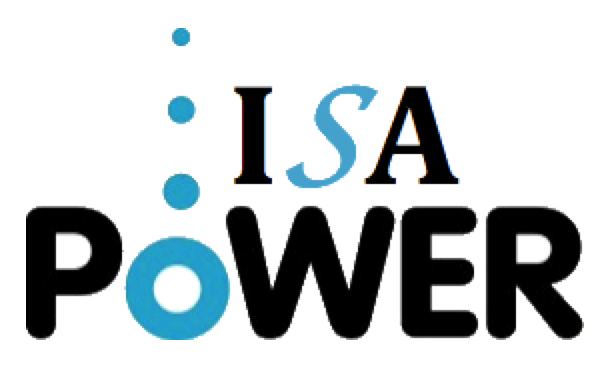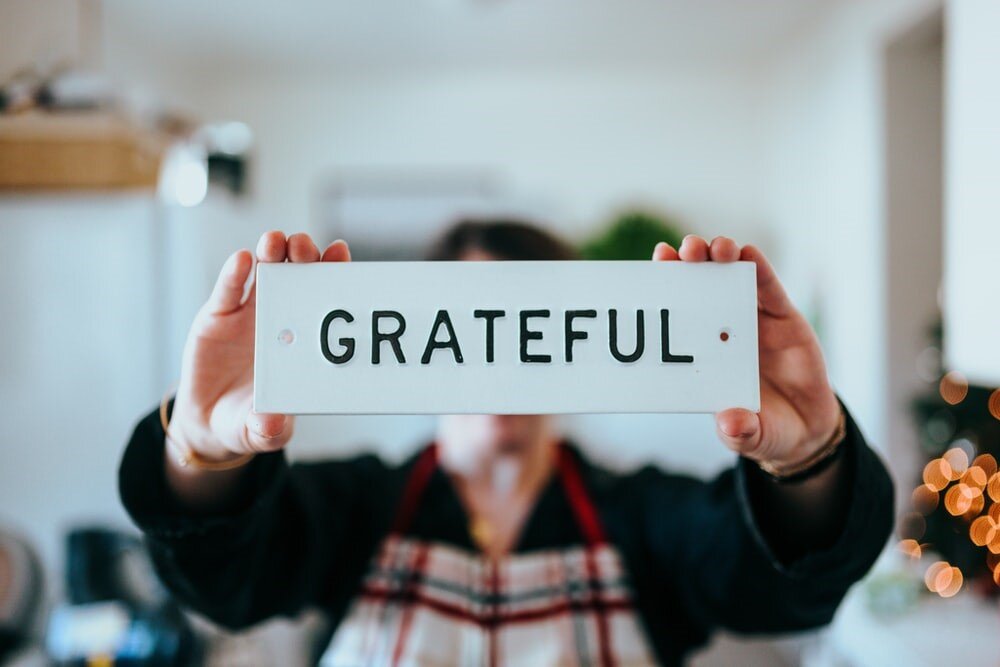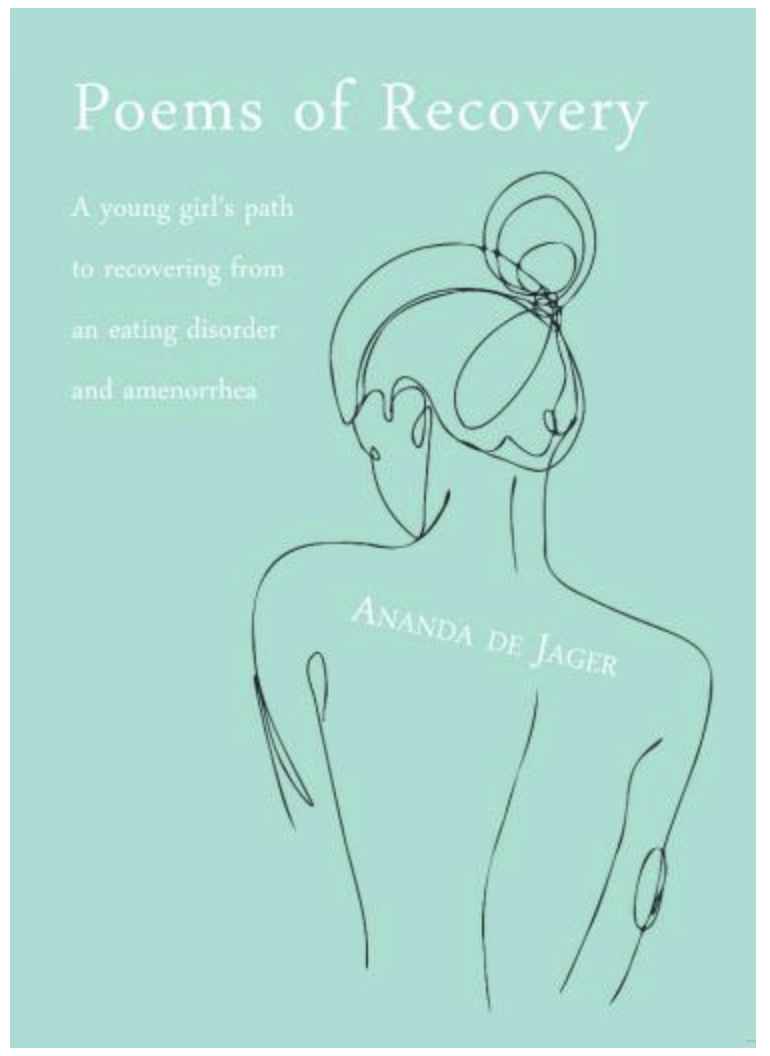~ Gratitude has not only enriched my life immensely but has also been one of the keys to my eating disorder recovery.~
Why is a grateful attitude even important? And how can you get one?
Written by Francesca Bas
Gratitude; “Actively engaging in acknowledging appreciation for both tangible and intangible things”.
I started practicing gratitude in my recovery from my eating disorder. This was not easy to insert, in fact in the beginning of getting introduced to the concept of gratitude I didn’t see the benefit at all. I thought it was some silly whoo-hoo business. When in reality many neuroscience and psychology fields, particularly positive psychology have collected strong data supporting the importance of gratitude and the positive impact/effects it holds on people’s lives.
My days before inserting gratitude consisted if me being sad and angry and I would actively look for data in my life which would support this. When a cup of coffee would spill it wasn’t just “oh I spilled a cup of coffee, let me clean it”. It was “see everyone and everything sucks and the world is against me now I can’t even drink this coffee”. When I was routinely responding to these moments with the second attitude of everyone and everything, it made life so much heavier. If spilling a coffee felt so huge and ruined my day imagine the impact on some more serious things could have. Even in my most amazing days I would mostly just focus in the small things which went wrong.
Gratitude as the biggest gift I’ve given myself
My therapist saw how much my focus on the negative was not only keeping me from enjoying life but was holding me back from recovery. She started to challenge me “find one good thing in every day” it took me a while to actually commit to doing this but when I started to, already this one little act made my days a bit better. It then went to find 3 good things in each day to then a good thing about each experience you do. I started to become more and more grateful, the more I practiced this the more natural it got and the happier I was getting. I started to remember how beautiful life is, that even in the hardest of times there are cracks where the sun shows through. My days started getting better and my life too, suddenly I found myself looking for the good instead of the bad.
Nothing in my life had changed I simply started looking at my life differently with the glass half full instead of half empty. Gratitude helped me to find my desire to recover and showed my how much better life could be with just a simple mindset shift.
I now walk around and automatically see all the beauty and all the things I’m grateful for, the sun shining on this plant while I write this blog, the beautiful people in my life, the man playing music in the street across from me. And also on hard days they become easier when you integrate gratitude they become much more doable. Integrating gratitude in bad days helps me because I am able to acknowledge my hard feelings whilst still being grateful for the good things I do have.
How does gratitude work on a psychological level?
“Positive psychology is the scientific study of what makes life most worth living, focusing on both individual and societal well-being”.
Positive psychology suggests some of the biggest personal benefits one can achieve through practicing gratitude include
Increase in happiness and positive mood
Higher satisfaction with life
Less likely to experience burnout
Better psychical health
Greater resilience
Better sleep
Increased pro social behavior
More satisfaction in life
In positive psychology research gratitude is highly correlated to greater feelings of happiness. Positive psychologists say the reason gratitude has these benefits and more is because practicing true gratitude disconnect us from unpleasant, toxic emotions and connects you pleasant and happy emotions.
How does gratitude work on a neuroscience level?
When we express gratitude we receive large amounts of dopamine and serotonin “the happy neurotransmitters” these two neurotransmitters heighten pleasant feelings significantly.
In a randomized study conducted a group of 300 participants was split into two groups “Group A and Group B” Group A was told to keep a gratitude where as group B was told to do nothing different then their normal routine. After 12 weeks group A was found to report feeling happier and less overwhelmed.
It’s important to note gratitude benefits in our mental health don’t show up over night, yes having a day or an hour of feeling a little extra gratitude is amazing but consistency is what will show longer term mental health benefits. Gratitude has long lasting effects on the brain! After group A and B were put in a MRI machine to test brain activity it was found the people in group A showed higher sensitivity In the medial prefrontal cortex which is an area of our brain which is associated to learning, decision making and long term memory. These findings allude to the idea that that gratitude does indeed have long lasting effects, decreases psychological stressors and grow a higher sensitivity to others.
To learn more about the neuroscience behind gratitude click here
Overall gratitude on wellbeing
The positive outlook practicing gratitude allows us to have, protects us agenized stress, sadness and feelings of being overwhelmed. Mindfully practicing on the long term will leave you feeling happier, more balanced and less stressed.
I hope practicing gratitude helps you the way it helped and healed me. Bellow I’ve listed a few gratitude practices which I personally love and have helped me.
Gratitude practices you can integrate in your life
Start a gratitude journal
When something good happens move it from being a passive thought to engaging with it. For example if you walk by a beautiful forest engage with that “ wow this is amazing the way the trees are bending, and the sun is piercing through the leaves, the way the birds are singing for me all so amazing, I feel so lucky to get to witness this”
Outwardly express gratitude to yourself and others
Write a gratitude letter
Recognize each day as a gift
Write your blessings
Avoid gossip and negative social medias
Seethe growth and opportunities in your mistakes


















